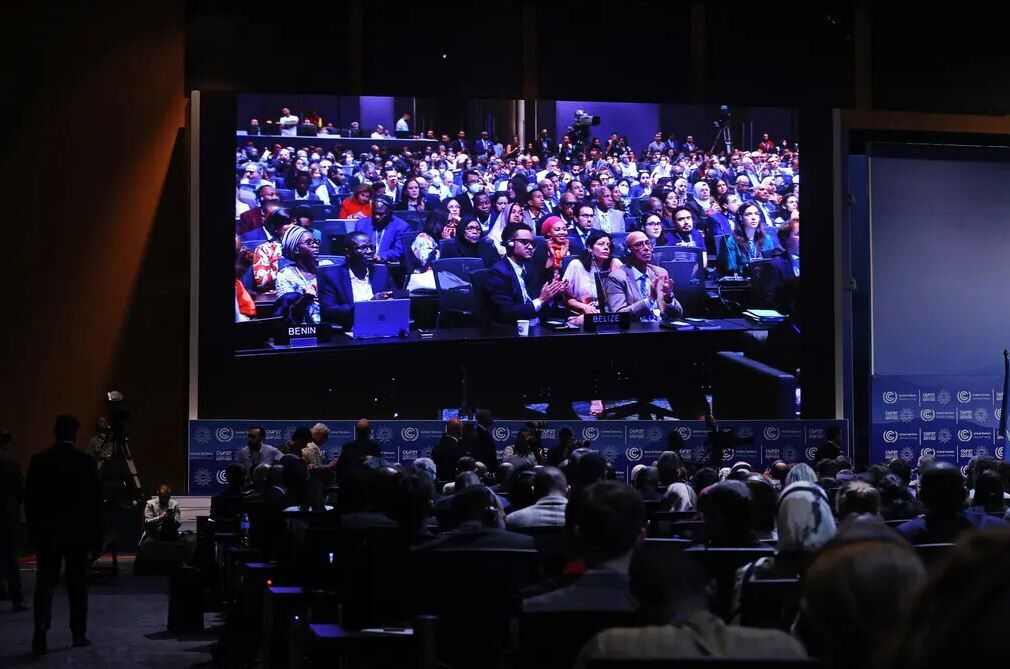The 27th Conference of the Parties, or COP27, of the United Nations Framework Convention on Climate Change got underway in Egypt on Sunday with a modest but significant breakthrough, despite warnings of heightened geopolitical tensions and the gloomy certainty of science.
On Sunday, the World Meteorological Organization announced that the most recent eight years were on track to be the warmest on record. The organisation cited the effects of accumulating greenhouse gas emissions in the atmosphere since the beginning of the industrial age as the reason for this prediction. The climate agreements that were reached in Paris in 2015 were intended to address this problem and to halt the rise in temperatures.
In a study, the agency said that the current average global temperature is 1.1 degrees Celsius higher than it was 150 years ago. This has contributed to an increase in the frequency and severity of heat waves and other forms of severe weather around the globe.
Alongside these depressing findings came what may be considered progress on the controversial topic of who will pay for the permanent harm that climate change is doing on the most vulnerable people all over the globe. The United States and the European Union have consistently voiced their opposition to the inclusion of the issue of “financial arrangements” for loss and damage on the official agenda of the conference; but, this time around, those concerns have been overridden.
This is a victory for a coalition of underdeveloped nations and emerging economies, which is backed by China. These nations claim that they have lost monetary resources, land, ways of life, and even human lives as a direct result of climate hazards, which are disproportionately caused by the greenhouse gas emissions of developed nations.
These nations, headed by the United States and Europe, have said for a long time that they are unable to agree to a separate pool of money because it may lead to an infinite number of claims for compensation. This year, they agreed to place loss and damage on the agenda, which was a significant shift from their previous attitude.
The situation is by no means resolved. There is no consensus on the establishment of a compensation fund, and there is no agreement over the distribution of funds, either. The director of the United Nations agency that deals with climate change, which is in charge of organising these discussions, Simon Stiell, said that “space has been created for dialogue.”
An association consisting of fragile island countries recently made a call for “solidarity not charity,” which is an indication of how high levels of dissatisfaction are now running.
An official statement issued by the Alliance of Small Island States said, “We are not asking for favours.” “We will not remain quiet victims to the expense of pollution caused by others, for the benefit of a select few,” the statement reads.
The global outbreak of the coronavirus and Russia’s military conflict in Ukraine have both contributed to the escalating tensions that hang over these negotiations. The skyrocketing cost of energy has stoked the thirst for the development of further fossil fuel projects. The cost of food has skyrocketed as well, pushing already impoverished individuals farther into a state of starvation.
The United States and China, the two countries that produce the most greenhouse gases in the world, are rarely communicating with one another, and the tensions between them are raised over a variety of issues, including trade and Taiwan. At the conference, these tensions will make it more difficult to make progress toward the conference’s goals.
According to Mr. Stiell, none of these issues will have the same kind of long-lasting effect that climate change will have. At a press conference, he issued a stern warning that “climate change is always occurring and will only become worse.”
The study from the World Meteorological Organization pointed forth in a clear and concise manner the potentially disastrous effects of climate change. The pace at which sea levels are rising is now twice as fast as it was thirty years ago. The temperature of the ocean is at an all-time high. The amounts of the greenhouse gases carbon dioxide and methane that are now in the atmosphere are at their greatest levels. According to Petteri Taalas, the secretary general of the organisation, this is precisely what scientific forecasts have been warning about for decades.
Dr. Taalas confirmed that his predictions turned out to be accurate.
